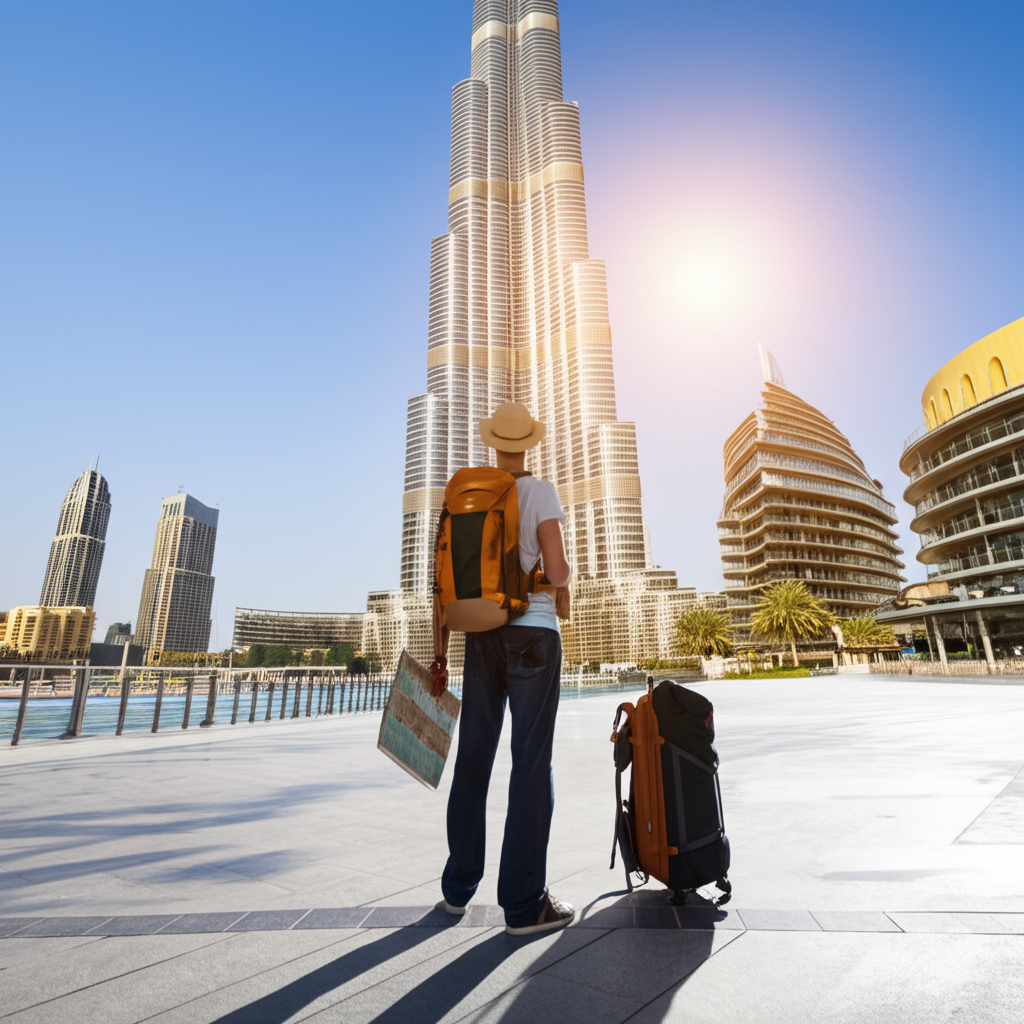Self-Guided Travel in Arabia: A Detailed Guide from A to Z
Estimated reading time: 10 minutes
Main Points
- Self-guided travel in Arabia offers flexibility, deep cultural experiences, and cost savings.
- Careful preparation regarding visa, health, and insurance is needed before traveling.
- Carefully plan your itinerary, choosing suitable destinations and schedules.
- Travel by flight and use public transportation or car rentals.
- Choose accommodations and enjoy local cuisine for a full experience.
- Respect Arab culture and customs, especially during festivals and events.
- Ensure personal safety and information security while traveling.
- Learn from the experiences of previous travelers and apply good tips for a perfect trip.
Table of Contents
- Introduction to Self-Guided Travel in Arabia
- Reasons for Choosing Self-Guided Travel in Arabia
- Preparation Before Traveling
- Planning the Itinerary
- Transportation and Traffic
- Accommodation and Dining
- Culture and Customs
- Safety and Security
- Experiences and Useful Tips
- Conclusion
- Frequently Asked Questions
Introduction to Self-Guided Travel in Arabia
Self-guided travel in Arabia is a form of independent travel, allowing you to plan and explore the Arabian region in your own way. This method of travel offers many benefits, including greater flexibility, deeper cultural experiences, and cost savings compared to organized tours. In this article, you will learn about visa requirements, how to plan your itinerary, health precautions, safety tips, and other useful information for a perfect trip.
Reasons for Choosing Self-Guided Travel in Arabia
Self-guided travel in Arabia offers many significant benefits. You can freely set your itinerary as desired, manage your budget more effectively, and authentically experience local culture. You can explore ancient monuments, participate in unique festivals, and enjoy hidden gems like traditional markets and serene desert landscapes at your own pace.

Many travelers have shared inspiring stories of exploring the history and vibrancy of cities such as the Al-Balad district in Jeddah or the tranquility of the vast desert in AlUla. These testimonies highlight the value of free exploration, from flexible itineraries to unexpected cultural encounters.
Preparation Before Traveling
Visas and Documents
Visa requirements vary by Arab nation. For instance, citizens of GCC countries can travel within member countries without a visa. UAE offers visas from 30 to 90 days upon arrival for certain nationalities, while Saudi Arabia offers e-visas for certain travelers. You need to prepare necessary documents such as a passport valid for at least 6 months, visa confirmation or e-visa, travel insurance, and a return ticket.
Health and Insurance
Before traveling, you should be vaccinated against diseases such as hepatitis A/B, typhoid, and routine vaccinations depending on the destination. Travel insurance is very important to handle unforeseen emergencies. Choose insurance packages that cover medical expenses, trip cancellations, and personal liability.
Planning the Itinerary
Choosing Destinations
Some popular destinations in the Arabian region include:
- Saudi Arabia: Visit the “Edge of the World” in Riyadh or the UNESCO heritage site in Diriyah.
- UAE: Explore Burj Khalifa in Dubai and the Sheikh Zayed Mosque in Abu Dhabi.
- Oman: Famous for the Musandam fjords and Nizwa fortress.
Each location has its own history and significance, offering you unique experiences.
Itinerary and Timing
Here are some sample itineraries for different durations:
- Short Trip of 5 Days: Focus on one city like Dubai or Riyadh.
- Long Trip (7-10 Days): Combine multiple cities like Dubai and Abu Dhabi.
The best time to visit these destinations is in spring or autumn when the weather is more pleasant.
Transportation and Traffic
Transportation to Arabia
Flying is the most convenient way to reach the Middle East. Major airlines like Emirates and Saudi Airlines offer various flexible options. To get the best fares, you should book tickets early.

Domestic Transportation
Public transport options such as buses and taxis are very popular and affordable. In cities like Riyadh, renting a car is a convenient option. To navigate efficiently, you should download local apps and use eSIM for internet connectivity.
Accommodation and Dining
Choosing Accommodation
Accommodation options in the Arabian region are diverse, ranging from luxury hotels in Dubai to budget hostels near historical sites in Saudi Arabia. To find the best deals, you should search on platforms like Agoda and prioritize central locations.
Local Cuisine
You should try local dishes such as kabsa, shawarma, and Arabic coffee. When enjoying local cuisine, respect local dining customs, such as avoiding eating in public during Ramadan.
Culture and Customs
Understanding Arab Culture
To respect Arab culture, you should dress modestly, especially in conservative areas like Saudi Arabia. Respect local customs such as gender-segregated areas and prayer times.
Festivals and Events
You can participate in major festivals and events such as Riyadh Season or Dubai Shopping Festival for an immersive experience. When participating, dress appropriately and respect local customs.

Safety and Security
Personal Safety
To ensure safety while traveling in the Arabian region, you should stay in main tourist areas and avoid isolated places at night. Be aware of common scams, such as taxi drivers overcharging, and know emergency contacts.
Information Security
To protect your personal information and belongings, you should use hotel safes to store valuables and avoid displaying excessive wealth.
Experiences and Useful Tips
Lessons from Previous Travelers
Learning from those who have gone before can help you avoid many mistakes. For example, planning your trip in spring or autumn will help you have a more comfortable experience.
Handy Tips for Self-Guided Travel
To save money and enhance your travel experience, you should buy tickets in advance for major attractions to avoid long lines, bring a power adapter for local outlets, and pack light clothing for warm weather.
Conclusion
Self-guided travel in Arabia is a great way to explore the culture, history, and natural beauty of the region. By preparing thoroughly and flexibly, you can create unforgettable experiences. Start planning your trip today and don’t hesitate to share your own travel stories to inspire others.
Frequently Asked Questions
What documents should I prepare for self-guided travel in Arabia?
You need to prepare a passport valid for at least 6 months, visa confirmation or e-visa, travel insurance, and a return ticket.
What is the best time to travel to Arabia?
The best time to travel to Arabia is in spring or autumn when the weather is more pleasant.
Is it advisable to rent a car while traveling in Arabia?
Renting a car is a convenient option, especially in cities like Riyadh, allowing you to move flexibly and explore more places.
How to respect Arab culture while traveling?
To respect Arab culture, you should dress modestly, especially in conservative areas, and follow local customs such as gender-segregated areas and prayer times.
How to ensure safety while traveling in Arabia?
To ensure safety, you should stay in major tourist areas, avoid isolated spots at night, and be aware of common scams.

